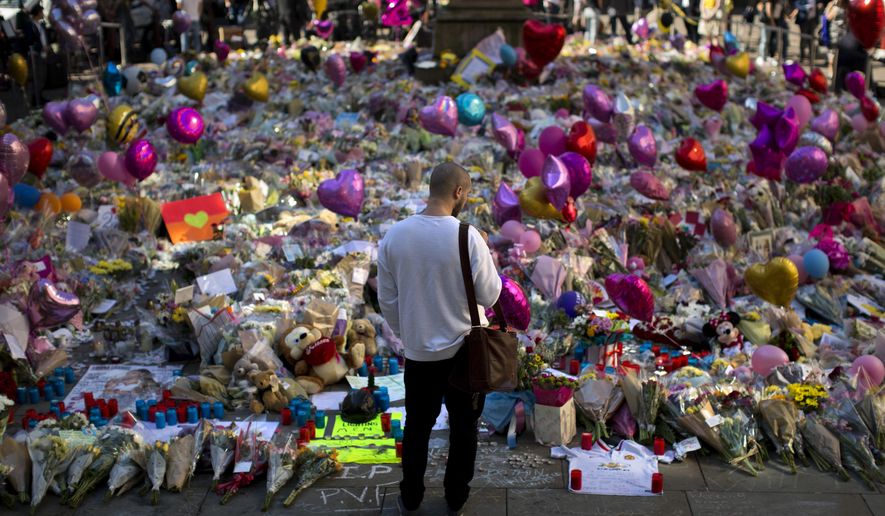OPINION:
Theresa May is hanging on as the prime minister in Great Britain, but her grip is slipping and the Tories are trying to get a blood transfusion from a tiny fourth (or maybe fifth) party from Northern Ireland, just to survive.
The Conservatives remain by a comfortable margin the largest party in the kingdom, but fell considerably short of a majority. They can remain in control of the government if the Democratic Unionist Party will pledge their 10 members in Parliament to stand with her on crucial votes. That might not be easy.
If Mrs. May can’t put together an arrangement, Jeremy Corbyn, the leader of the Labor Party, which ran second, will get an opportunity to try to put together a coalition. That wouldn’t be easy, either. But the British invented “muddling through.” Whether Mrs. May’s government, or the government of someone else, it will have to get on with negotiating the British exit from the European Union, and the petty bureaucrats — and the bigger bureaucrats in Brussels who are being as petty as they can be — won’t make that easy, either.
The bureaucrats are making it difficult because they don’t want to give other nations, Italy being one, the idea that they can leave, too. An alternative, says one bitter wit, is to make the other nations mere provinces of Germany, and be done with it.
Certain senior Conservatives blame Mrs. May for the miserable Tory campaign, and are further irritated that now she won’t go away quietly. When she called the “snap election” six weeks ago the pollsters told her she would likely win by 20 points over Labor and the clutch of minor parties, but the lead slowly dissolved in a campaign marked by stumbling, bumbling and missed opportunities.
The campaign was further roiled by radical Islamic terrorism, wholesale massacre in Manchester and lesser massacre in London. Outrage followed, and Mrs. May defiantly told a rally just days before the elections that “enough is enough,” and promised a crackdown harsh enough to be effective. But it was not enough. Jeremy Corbyn is a true left-wing radical, and was thought unlikely to overcome suspicions from past associations with the Irish Republican Army and militants who appeal to many Muslims in the slums of London and other large cities. Immigration, all but uncontrolled, has transformed neighborhoods into no-go zones.
The early favorites to replace Theresa May, if she is indeed replaced, are Boris Johnson, 57, the foreign secretary who was once a popular mayor of London; Amber Rudd, 58, the Home Secretary and rising Tory star, and David Davis, 67, the minister assigned to negotiate the exit from the European Union and a veteran of British politics.
The bookies — betting is legal in Britain and betting shops abound — have established Mr. Johnson as the favorite. He declined Friday to say he supports Mrs. May to stay in office, saying it was still early. He would be the first American-born prime minister. A New Yorker, he might use the device of Douglas MacArthur, who wanted to be a Virginian and said he was born in the Old Dominion “when my mother was temporarily in Arkansas.” But there is no requirement that prime ministers be native born, and if Mr. Johnson could survive his full name, Alexander Boris de Pfeffel Johnson, he could probably survive having born an American.
He’s the master of the quip and the quick response, which despite his conservative politics make him popular with reporters and pundits on the scout for a colorful quote. He once said his chances for being prime minister “are about as good as the chances of finding Elvis on Mars, or my being reincarnated as an olive.”
But that was then, and this is now, when all things if not new are different. “I have discovered,” he said on another occasion, “there are no disasters, only opportunities. And, indeed, opportunities for fresh disasters.”




Please read our comment policy before commenting.